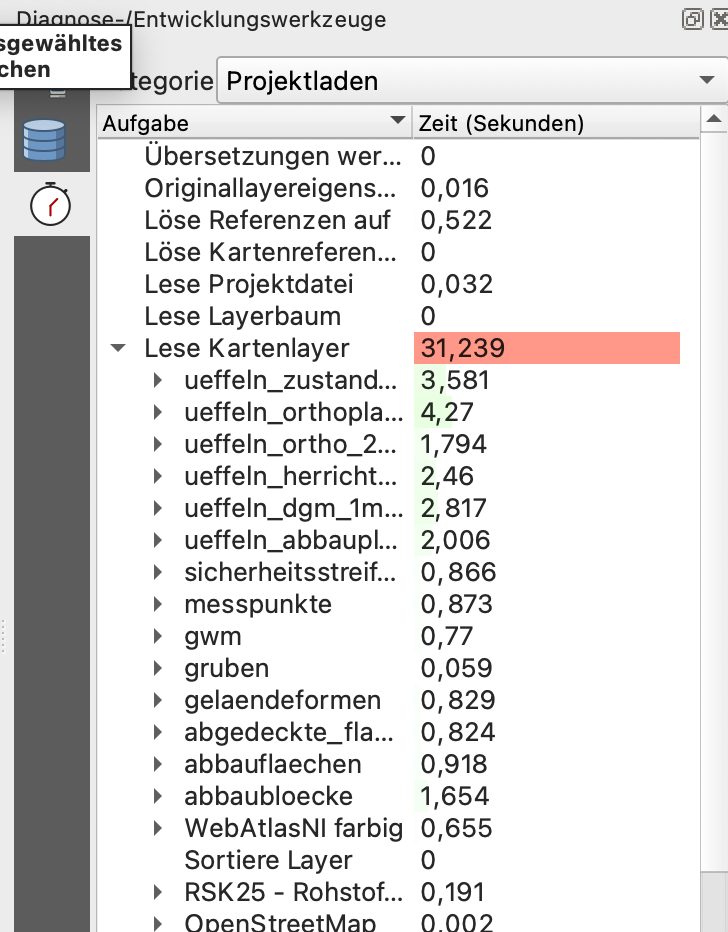I have a number of standard projects set up for QGIS users. Some of them take more than 5 minutes to load. Things recently got much worse suddenly - and I want to track down why.
Are there any methods to check what stages of loading a project are slowing things down or/and how long QGIS is taking over each stage of loading a project?
In my particular case the issue may be related to internal network overload, and seems to be related to upgrades (at the same time) from Windows 7 to Windows 10 and QGIS 2.18 to QGIS 3.4. However, I think answers will be more useful for others/Stackexchange if they consider the wider question.


.qgsfile sizes to 10 MB to avoid this. If the issue persists you could add some more details on your project files and your data structure?